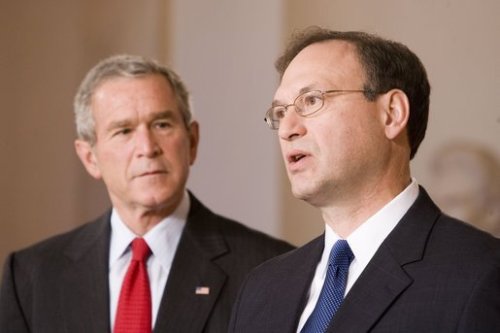I’m still working my way through the transcript (pdf) of today’s Supreme Court oral argument on California’s Prop 8, but there’s one quote that already seems to be generating quite a bit of attention. It comes by way of Justice Samuel Alito:
“Traditional marriage has been around for thousands of years. Same-sex marriage is very new. I think it was first adopted in The Netherlands in 2000. So there isn’t a lot of data about its effect. And it may turn out to be a — a good thing; it may turn out not to be a good thing, as the supporters of Proposition 8 apparently believe.
“But you want us to step in and render a decision based on an assessment of the effects of this institution, which is newer than cell phones or the Internet? I mean we — we are not — we do not have the ability to see the future. On a question like that, of such fundamental importance, why should it not be left for the people, either acting through initiatives and referendums or through their elected public officials?”
Alito’s argument seems to be one focused on the calendar. Perhaps, the theory goes, millions of Americans can be denied equal rights for an indefinite period of time, and jurists can revisit the issue in the future. At that point, they can revisit whether or not allowing two consenting adults to get married is “a good thing.”
Remember the fine print in the Declaration of Independence? We have an inalienable right to liberty and the pursuit of happiness, just so long as the specific type of happiness is older than mobile telephones.
There’s a term for handing down a decision that’s based on personal beliefs, rather than the Constitution and law: “judicial activism.” Seems to me there was a time when conservatives thought that was a bad thing. It’s not their job to decide whether or not a law or a finding is a good idea, only whether it’s just.
We didn’t hire Samuel Alito to be a speculative anthropologist, we hired him to be a Supreme Court Justice. No one’s asking him to predict the future, because that’s not in the job description.






